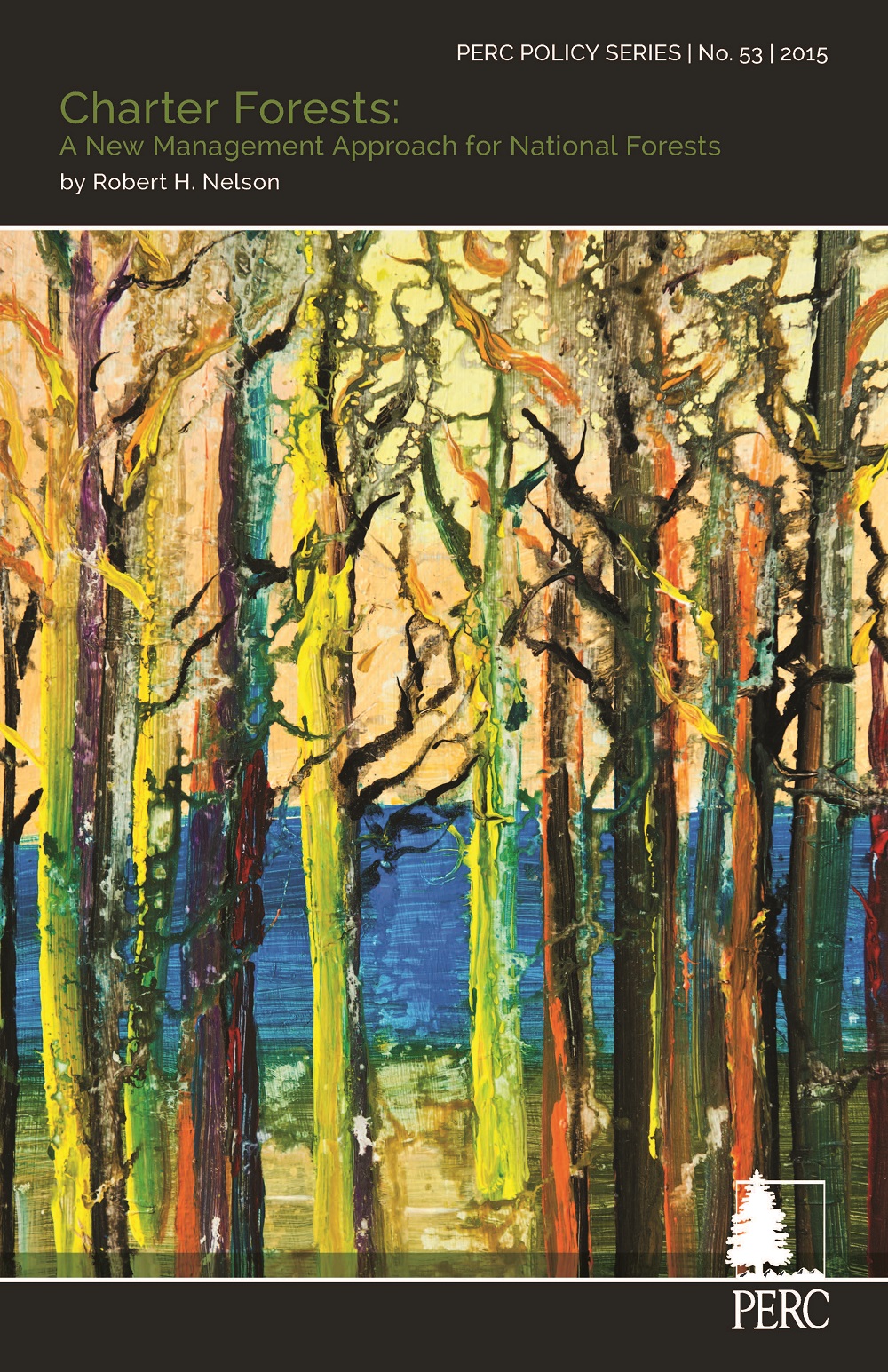 DOWNLOAD THE FULL REPORT
DOWNLOAD THE FULL REPORT
Innovation drives successful management. But when it comes to public land management, innovation is often lacking. National forests are frequently characterized by gridlock and dysfunction. As several former agency directors put it, the U.S. Forest Service suffers from “analysis paralysis,” resulting from a “Gordian knot” of laws and litigation.
Is there room for innovation on national forests? Public land scholar and former Bureau of Land Management director Marion Clawson thought so. “I reject any idea that we today are less imaginative and resourceful than the men and women who pressed for the establishment of the national forests,” he wrote in 1984. “We too can innovate; let us try.”
In a new policy report from PERC, Robert Nelson of the University of Maryland puts forth an alternative approach to national forest management—the creation of “charter forests.” Much like charter schools, the key principle of charter forests is freedom with accountability. Charter forests would be freed from the centralized administration of the Forest Service, and management would be devolved to individual autonomous forests capable of more creative and locally responsive management.
Charter forests would operate under federal oversight, including broad land use goals and performance standards to protect environmental quality. But they would have the flexibility to develop and implement innovative solutions to forest management—something sorely needed on national forests today.
Clawson was right. We too can innovate. So let us try.
Charter Forest Principles
- Charter forests would be freed from traditional U.S. Forest Service control and management responsibilities would be transferred to individual autonomous forests.
- Charter forests would remain under federal ownership.
- Charter forests would be exempt from many legal and regulatory requirements that inhibit the adoption of innovative and locally responsive management.
- Charter forests would operate under less restrictive hiring practices.
- Charter forests would be governed by a board of directors for each forest.
- A national charter forest board would oversee charter forest management.
- Charter forest boundaries would be approved by the national charter forest board.
- Charter forests would receive public support to cover part of their operation costs.
- Charter forests would have the authority to set user fees and retain the revenues.
- The federal government would provide wildfire management on charter forests.
Reviews
Using the experience and successes of charter schools, Robert Nelson examines the question of innovative management of national forests. Nelson applies one of the more creative minds in public policy to the subject. He argues that the traditional progressive approach for public education has experienced large failures. An alternative is the creation of “charter forests,” drawn from the charter school experience, where the traditional bureaucratic constraints are diminished and more flexibility is allowed. Nelson provides an outline for such an approach.
— Roger A. Sedjo
Senior Fellow and Director of the Forest Economics and Policy Program, Resources for the Future
Robert Nelson is right in his diagnosis of a U.S. Forest Service out of sync with the needs of America’s national forests. The Forest Service’s organization and mission are too sclerotic and far outdated to serve the public trust in a 21st century world. His prescription for charter forests is intriguing and might just work. We desperately need new ideas if our national forests are to thrive. Charter forests deserve a proper hearing.
— Karl Hess
Author of Visions Upon the Land: Man and Nature on the Western Range
Ph.D., Rangeland Ecology
Download the full report, including endnotes and references.




